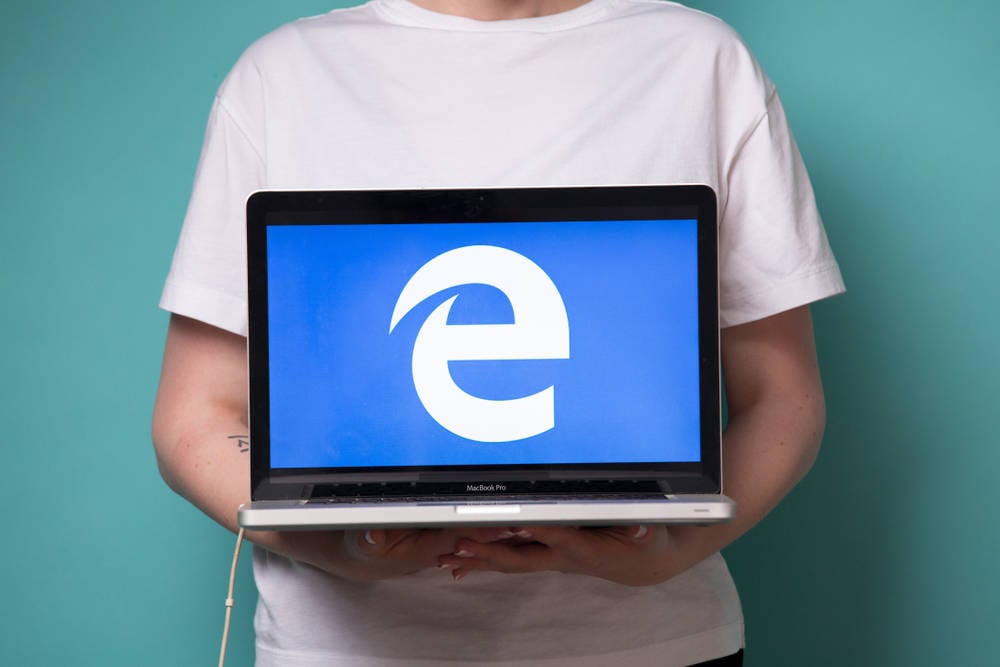
Microsoft's first serious attempt at a web browser, Internet Explorer 3.0, turned 25 on August 13th. And one of the developers on the team that created it – Hadi Partovi – has revealed how the product came to be, the mad rush to get it to market, and the cost of that effort.
The launch of Internet Explorer 3.0 was an important event in the so-called "browser wars" between Microsoft and Netscape.
For those who weren't there, or who have forgotten, in 1993 developers at the at National Center for Supercomputing Applications thought the World Wide Web could be quite big if it were easier to use – say, with a browser that sported a GUI rather than a text interface.
That effort produced a browser called "Mosaic" and one of its developers – a chap named Marc Andreessen – quickly productized it as Mosaic Netscape and started a company to market it.
Netscape took off, as did the web.
Microsoft, meanwhile, was scarcely aware the web existed, and a browser was not on the to-do list for its massive push to create Windows 95 and give the world a cut of Windows that improved on the illogical nonsense that was Windows 3.1. Microsoft felt that Windows 95 was the product that would see it reach Bill Gates's goal of "A microcomputer on every desk and in every home running Microsoft software".
But as Netscape grew in popularity and the potential for a GUI-driven web became ever-more apparent, Microsoft knew it could only achieve that goal if Windows 95 included a web browser. So it created Internet Explorer.
Versions 1 and 2 were included in add-on packs for Windows 95. But they were modest performers and lacked features available in Netscape.
So Microsoft created an internal start-up to build a browser capable of competing with Netscape.
Which is where Partovi comes in, with a long Twitter thread recalling the genesis of Internet Explorer 3.0.
Partovi explains that Bill Gates wrote a company-wide memo that declared IE was critical, and telling all other development teams to get behind it.
"Our inboxes exploded, but it made us feel important, and we worked even harder."
To motivate us more, I plastered the hallways with quotes from Netscape’s founder, Marc Andreessen: “Netscape will soon reduce Windows to a poorly debugged set of device drivers.” It reminded us that this new start-up threatened to destroy all of Microsoft.
— Hadi Partovi (@hadip) August 14, 2021
And work they did: Partovi's thread describes the development effort as a long sprint and mentions 2am foosball games designed to help developers find some extra energy.
That kind of effort had unpleasant consequences.
Sadly, there were divorces and broken families and bad things that came out of that. But I also learned that even at a 20,000-person company, you can get a team of 100 people to work like their lives depend on it.
— Hadi Partovi (@hadip) August 14, 2021
Partovi added to the thread to point out that his mention of the divorces has been misconstrued – there were only two. He added that the experience was very rewarding.
Every member of this team considered it a highlight of their career. And there was great mutual respect with the team at Netscape who are still my friends.
— Hadi Partovi (@hadip) August 15, 2021
And he feels that working on IE 3.0 was a great experience.
Most Microsoft engineers made $1M+ then, regardless of team. But thousands wanted to join the IE3 team just to do their best work and give their all. And thousands considered it crazy and chose other teams. Anybody who left our team was quickly hired on other teams.
— Hadi Partovi (@hadip) August 15, 2021
He also admits that Microsoft's browser efforts would have struggled without the company's near-monopoly on desktop operating systems.
Tech history explains this to be about Microsoft’s Windows monopoly, which surely played a role. But it wouldn’t have been possible if Microsoft didn’t also learn how to work on “Internet time.”
— Hadi Partovi (@hadip) August 14, 2021
And that monopoly appears to have created hubris.
I didn’t have the heart to watch the slow death of my baby. I left Microsoft in 1999 and joined my former competitors from Netscape to start a startup together, Tellme Networks. I finally had a chance to apply all the lessons I had learned at Microsoft.
— Hadi Partovi (@hadip) August 14, 2021
Partovi has left out that IE 3.0 indirectly led to Microsoft's first big set of antitrust troubles, as Microsoft made it devilishly difficult to uninstall IE and replace it with Netscape, or to put Java to work instead of Microsoft's ActiveX alternative.
IE 3.0 therefore led to the near breakup of Microsoft. The browser also offered a rather porous security model, and by the time the woeful version 6.0 came long it gave Microsoft years of trouble and a reputation of foisting shabby software on its customers.
Microsoft was eventually reduced to recommending customers uninstall IE 6.0. Your correspondent was once told, by a senior Microsoft person, that CIOs resisted that call because IE 6.0 rendered early versions of Facebook very badly – so badly that it improved staff productivity!
Partovi went on to found the Hour of Code movement and is now CEO of code.org . ®
"explorer" - Google News
August 16, 2021 at 02:58PM
https://ift.tt/3skbroY
Internet Explorer 3.0 is 25 years old. One of its devs recalls how it ended marriages – and launched amazing careers - The Register
"explorer" - Google News
https://ift.tt/2zIjLrm
Bagikan Berita Ini














0 Response to "Internet Explorer 3.0 is 25 years old. One of its devs recalls how it ended marriages – and launched amazing careers - The Register"
Post a Comment